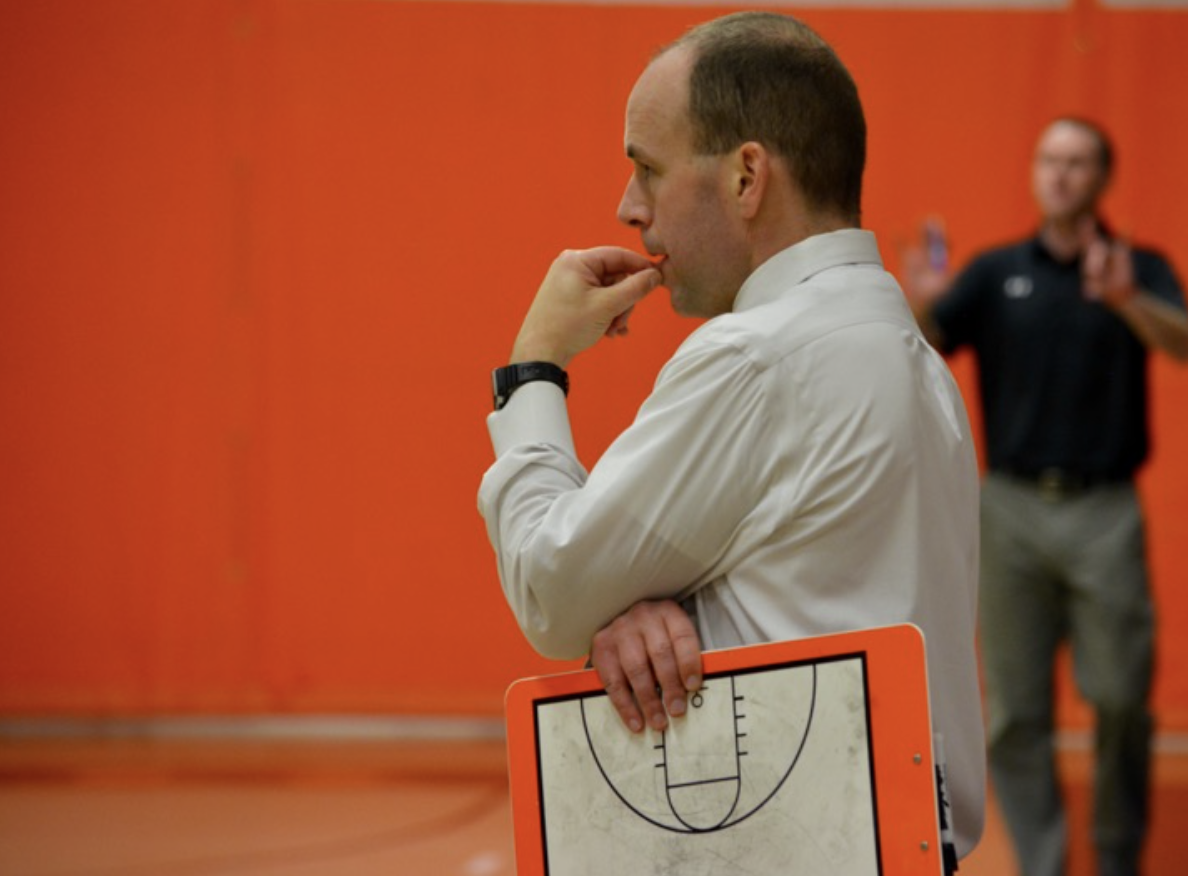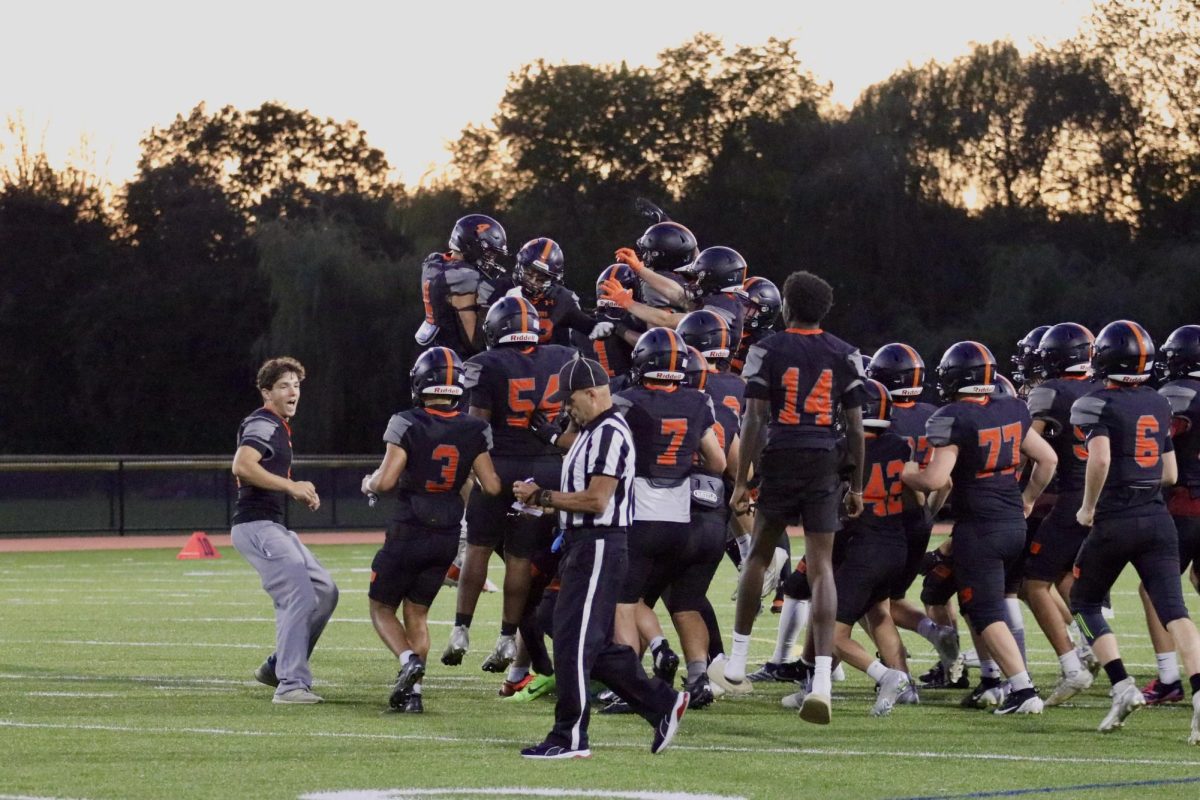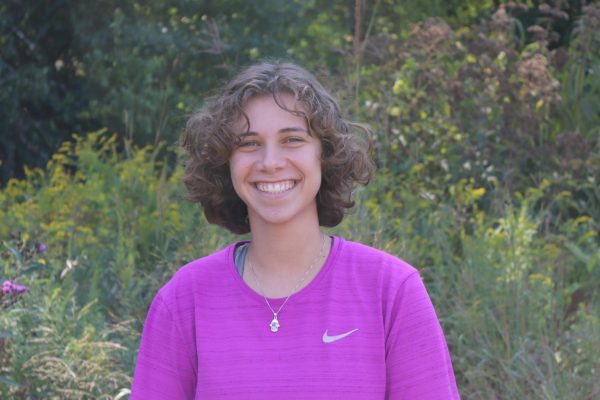When asked “what do you want to be when you grow up?” some young kids’ answers included being a professional athlete. This year, nine Wayland High School seniors took the next step to achieve that goal as they committed to college to play their respective sport. The nine seniors are Maddie Genis, Ava Balukonis, Lulu Kazlas, Anika Frutman, Elena Mente, Julia DeGrenier, Abby Wrentmore, Jenny Shine and Xande Santos.
Playing a sports in high school can give student athletes several opportunities if they decide to put in the time and effort. Playing a sport is a hobby that gives back, meaning the more work an athlete puts in, the better they preform. On top of that, some seniors like Frutman realize that by pursuing a sport in college, they could potentially increase the chances of getting into an academically-selective school. Frutman is committed to Wesleyan University for track and field. Wesleyan is apart of the New England Small College Athletic Conference (NESCAC).
“I prefer sports as a way to stay in shape compared to working out on my own,” Frutman said. “I find it’s better for me to have a coach telling me what to do, [because] that way I actually push myself and am motivated. Also, [doing a sport] helped me get an extra boost getting into college for the division three schools.”
Some committed athletes also take the academic aspect of college seriously. Frutman and some other committed athletes from WHS, like Genis who is committed to the University of Massachusetts Amherst for rowing, put their academic needs first and athletic needs second.
“At the end of the day, academics is the most important thing because you don’t know what’s going to happen in college,” Genis said. “You don’t know if you will make it four years playing a sport or if you won’t. It took me a while to learn how to separate athletics and academics, but finding a college that satisfies all of your needs is very important.”
Frutman and Genis are examples of athletes who worked for a position on their college’s team, but who started their respective sports during high school, which is later than some other committed athletes. Genis believes she would be a collegiate swimmer if she had not fallen for crew during the summer before her freshman year. Frutman didn’t start her track career until sophomore year. On the other hand, Wrentmore, who is committed to Smith College for division three lacrosse, has been playing lacrosse for as long as she can remember.
“I absolutely love to compete,” Wrentmore said. “I love exercising and doing my own thing, but I also love the aspect of being on a team. Being on a team is what pushes me to want to get better. It’s the reason I do all my training over the winter and summer. Our [WHS girls varsity lacrosse] team motto this year is ‘pressure is privilege’ and I think it’s true. I really gained something from having people who pushed me.”
For some athletes, the transition from high school or club sports to a collegiate level can be an exciting, but also a big jump. There is usually a higher level of competition, expectations and dedication on a college team than on a high school team. On top of this, some athletes worry about the unknown, traveling over state lines for games or meets and making time for their school work.
“I struggle with decisions,” Frutman said. “I knew [that deciding on a college] was never going to be something that jumped out as, ‘this is the right choice for me, I’m 100% sure about that.’ But, I feel like [the Wesleyan] coach is someone who wants to help me. Finding that balance of an athletic school versus an academic school, at least for me, was important.”
Whether it means going to the gym instead of partying with friends, or skipping out on an event for a practice, being a college athlete can, for some, be extremely time-consuming. To prepare for this shift, some high school athletes have personal trainers.
“I have a training plan which consists of lots of erging and lifting,” Genis said. “I have a personal trainer outside of my team, and basically he gives me guidelines [for my workouts], and then we decide what I want to do for a training plan throughout the winter.”
Given everything these student athletes have put into their sport, they expressed an overall excitement for their futures and highlighted the importance of going for what you want. The biggest advice such students give to those who are considering playing a sport in college is to keep trying no matter what. They emphasized how, in the end, it will be worth it, so students should not be scared of rejection.
“If you want to play in college, you have to start emailing coaches early,” Wrentmore said. “I put off emailing coaches for so long because I was so nervous. It’s nerve-wracking, putting yourself out there, but you have to do it. Once you get [to college and to your team], it’ll be worth it and you’ll find your community. I was so relieved once I had talked with the coaches and decided to commit to Smith.”




























